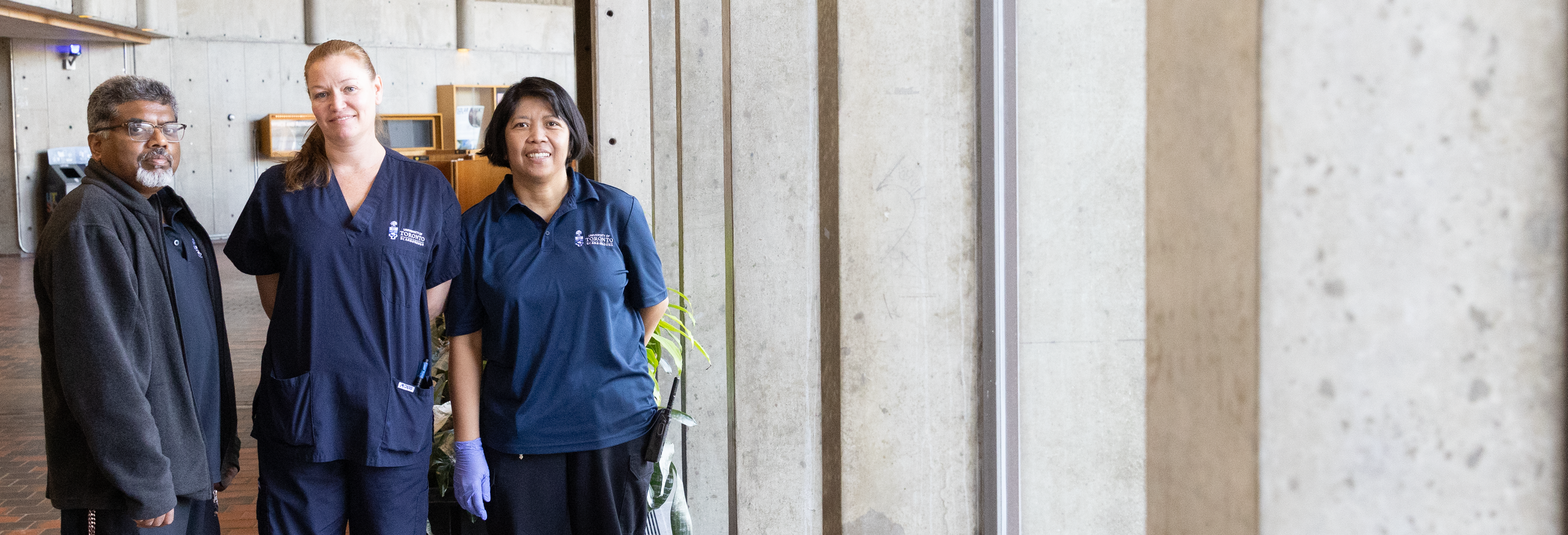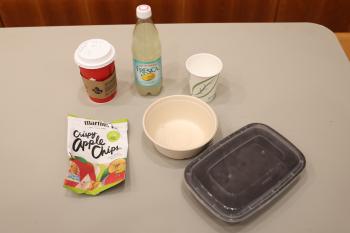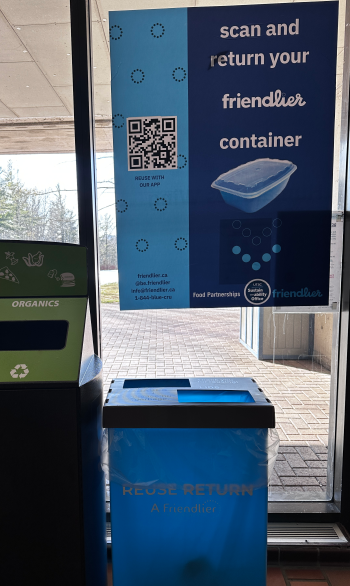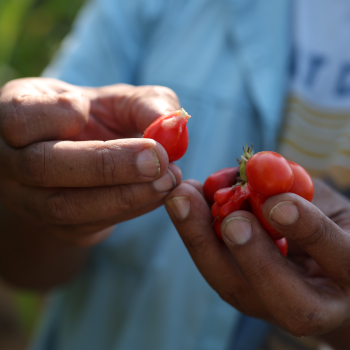
U of T Scarborough's waste is managed by the caretaking department, which is made up of around 17 employees. Most members of the campus community rarely see or consider the amount of waste produced by the campus, but the caretaking staff witness it first-hand every day. As a result, the facilities management and caretaking staff are aware of the urgent need to reduce the campus’ waste as much as possible, and they work every day to achieve this goal.
Read on to learn more about UTSC's waste management strategies, or click here to read our Waste Audit Reports & Reduction Work Plan.

UTSC’s waste is collected by our caretaking team throughout the day, with a big clean up conducted every night. Our waste is divided into 7 categories to ensure proper disposal: paper and cardboard, recycling, garbage, electronic waste, metals, land waste, and organics.
Paper, cardboard, recycling and garbage are collected by the City of Toronto. Electronic waste and organics are collected by separate third-party companies. Metals are sold, and land waste, such as leaves and grass, are returned to our campus forests to nourish the soil through natural decomposition.

Recycling contamination is by far the most pressing challenge faced by our caretaking team, as it requires participation of the campus community. It can be difficult to determine what is recyclable and what is not, especially for members of the community who come from different cities or countries which have different recycling programs, or have no recycling programs at all.
Coffee cups, for example, are made of paper, a recyclable material, but they are coated with wax, which prevents them from being recycled. Coffee cups are by far the worst culprit for recycling contamination on campus.
Education on recycling is difficult in a campus environment, as the students are only here for a limited time—all the nuances of recycling programs must be taught within four years. However, the effort is necessary, as our recycling goes to the city of Toronto, which does not have the resources to sort out contaminants. Just one piece of garbage in a recycling bin contaminates the entire bin, meaning it all must be thrown in the garbage.

To make proper waste disposal as easy as possible, the facilities management staff have identified the most common recycling contaminants, and are in the process of re-labelling the waste receptacle bins and adding new bins which clarify what waste goes where.
Another pilot project involves removing all desk-side garbage bins from our campus offices, replacing them with larger, centralized waste receptacles in common areas. Not only does this result in easier collection for our caretaking staff, but it also means that staff members become more aware of the waste they produce by taking the time to dispose of it properly.
Beginning in 2023, our campus now collects organic waste. It is also necessary to educate the campus community about proper organics disposal, however, our organics are collected by a third-party company which has the resources to sort through the waste they collect from us. This means that, unlike the recycling collected by the City of Toronto, contaminants are sorted out, and it is more likely that our organics waste can be properly disposed of.
To further cut down on dining waste, UTSC has partnered with Friendlier, a reusable container program. Students and staff can pay a 50 cent deposit for a resuable food container, and once they are finished, they can drop the container into a Friendlier collection receptacle. By using the Friendlier app, the deposit will be refunded to the user once the containers are collected.

Members of the UTSC faculty also run a vermicomposting pilot project. Vermicomposting is the use of earthworms to convert organic waste into fertilizer. The fertilizer produced by our vermicompost system is distributed to our grounds team for use in our gardens and the Campus Farm. Though our vermicompost is nowhere near large enough to handle all our organic waste, it serves as a learning opportunity that demonstrates the viability of such systems in the future.